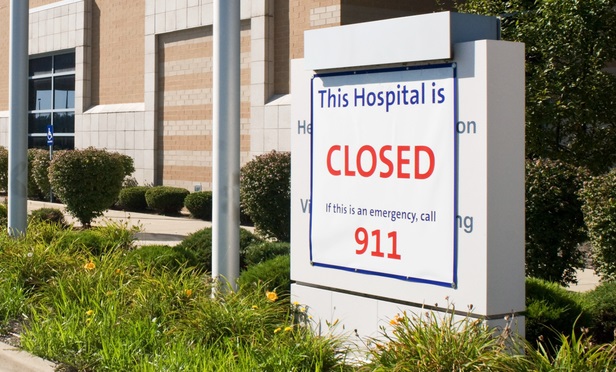 Despite their central role in providing rural health services, more than 100 rural hospitals have closed over the past 15 years. (Photo: Shutterstock)
Despite their central role in providing rural health services, more than 100 rural hospitals have closed over the past 15 years. (Photo: Shutterstock)
Many rural Americans are squeezed between greater health care needs and fewer resources. Although adults living in rural areas are more likely to live in poverty and have greater unmet health needs than those in urban areas, there is a severe shortage of primary care, behavioral health and other specialty care providers.
Despite their central role in providing rural health services, more than 100 rural hospitals have closed over the past 15 years, and many of those that remain open have merged with other hospitals or health systems. After a merger, hospitals may reduce service lines that are less profitable or that duplicate services offered by merger partners. Reductions in services provided by these hospitals may be associated with negative health outcomes if patients must travel farther to receive care or if clinicians who offered those services move from the area.
Recommended For You
Elimination of service lines by rural hospitals can have serious health consequences, according to a new study reported in "Health Affairs." Researchers found that independent rural hospitals that affiliated with another hospital generally reported a decrease in the availability of obstetric and outpatient primary care services, as well as a reduction in the availability of on-site diagnostic technologies and nonemergency outpatient services, compared with hospitals that remained independent.
"This study found that rural hospitals that merged were more likely than hospitals that remained unaffiliated to eliminate certain services lines in the first and second years post-merger, specifically for maternal/neonatal and surgical care," according to the report. "Merged hospitals in rural areas also showed reductions in the volume of mental/substance use disorder stays, whereas hospitals that remained unaffiliated showed increased volumes."
Mergers can present mixed results for some rural communities. Although they may enable a hospital to remain in business, access to some services may be reduced. Mergers may provide funds, resources and strategic direction for hospitals to realign their services to achieve financial solvency, but reduction of service lines within the acquiring hospital or health system might not be consistent with the health needs of the community.
"Although mergers might salvage hospitals' sustainability, they do not necessarily mean that all service lines are retained or that hospitals are as responsive to community needs as before the merger," the report concluded. "Specifically, we found that merged hospitals had reduced maternal/neonatal, surgical and mental/substance use disorder services. Payer-supported, multistakeholder initiatives to transform rural health care to be both financially sustainable and responsive to population needs are necessary for rural hospitals to retain high-quality service lines required by their communities."
© 2025 ALM Global, LLC, All Rights Reserved. Request academic re-use from www.copyright.com. All other uses, submit a request to [email protected]. For more information visit Asset & Logo Licensing.








